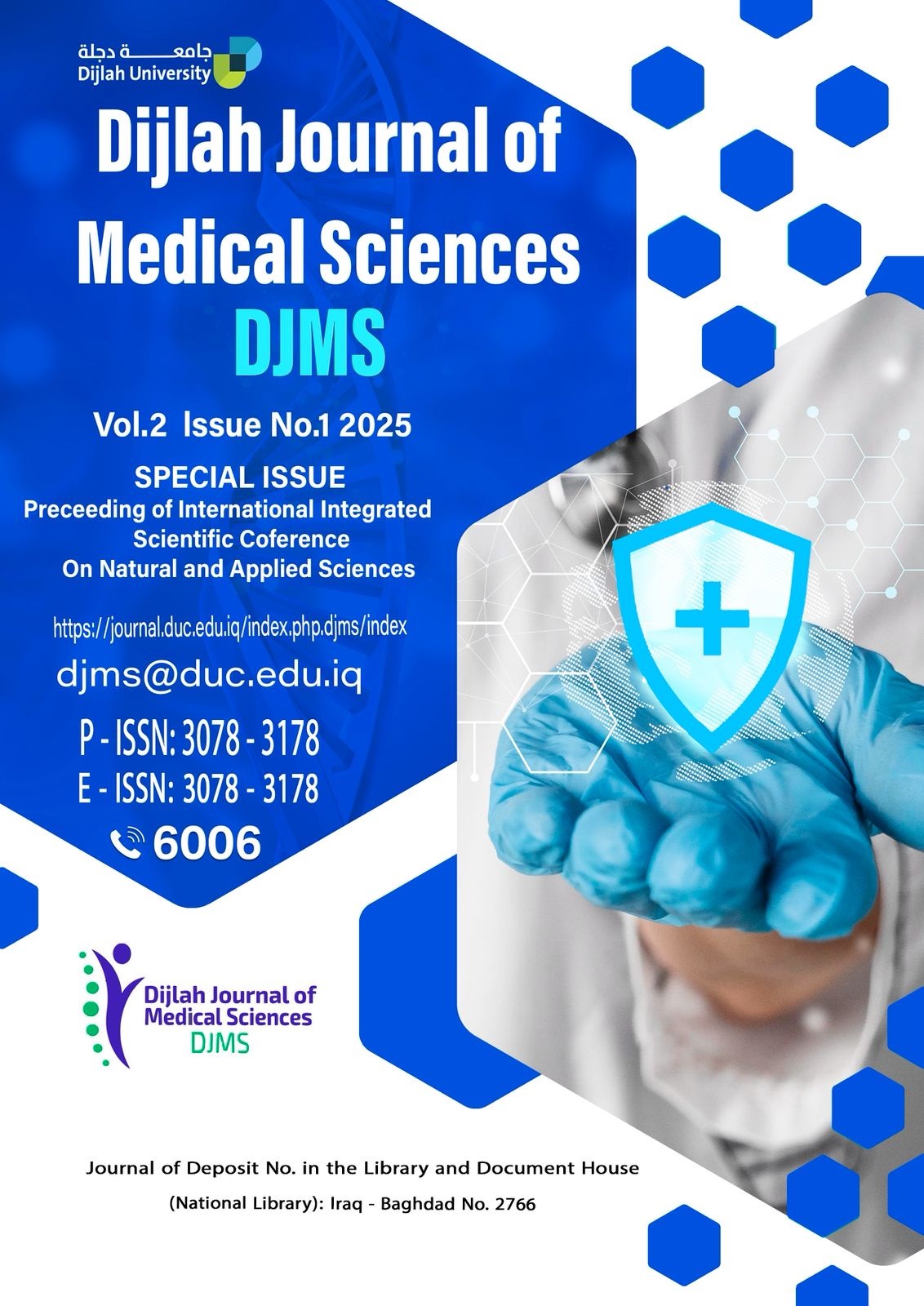pdf Blood Pressure in a Sample of Al-Ramadi City: A Quantitative Genetic Study
Louay Al-Ani, Kareem A. Hammadi, and Huda M. Mahmood
DOI:
https://doi.org/10.65204/djms-BP-AlRCAbstract
It is commonly known that genetics plays a part in blood pressure and the risk of hypertension. Nevertheless, few studies have been done to identify the genetic differences that contribute to the heritability value. Therefore, the current work uses full-sib analysis on Iraqi individuals in Ramadi, west of Iraq, to assess the genetic influences on intra-individual variance of blood pressure limitations.
100 people in all, including 27 families, were identified. This study looks at the advancements and challenges of research. This study presented that communal genetic differences in a narrow set of genes that influence blood pressure is unlikely to impact the genetic manner of blood pressure control in the inhabitants. Rare variation, which primarily affects pedigrees rather than the population, may instead be responsible for heritability. In the coming years, high blood pressure genetics is expected to concentrate on rare variants across a wide range of genes. The difficulties that need to be overcome and the methods being developed to find this genetic diversity are described.
Therefore, findings propose that diastolic and systemic pulse pressure is crucial characteristics that influence the blood pressure phenotype, and any blood pressure management program would be most effective based on these characteristics.

